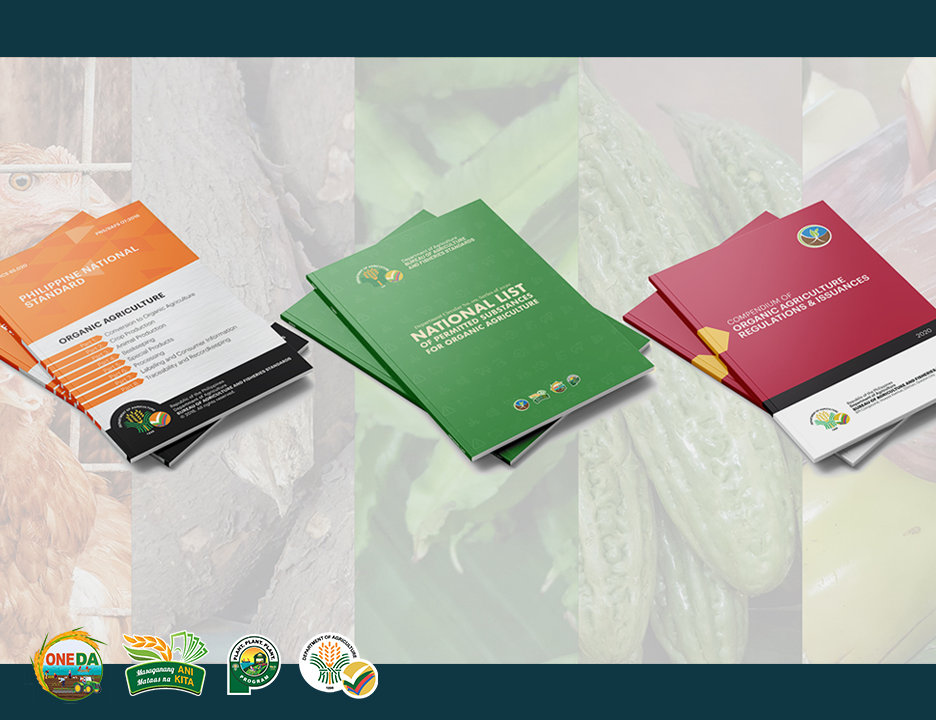
June 30, 2021. Certification is a process of providing written attestation that a clearly identified process has been assessed according to specified requirements or standards and is found to be compliant. In organic agriculture, certification is the attestation from an organic certification body that a farming and/or processing system is compliant with the specified requirements of the applicable Philippine National Standards for organic agriculture (PNS for OA). This process ensures that the products labeled as organic have been assessed and certified indicating that its integrity as organic is maintained.
However, how do we know that these certification bodies, or commonly called as organic certifying bodies or OCBs, are assessing these farming and/or processing systems in accordance with the applicable PNS for OA? How do we ensure that these OCBs are not partial to its clients, which are the subject of certification? How do these OCBs conduct their assessment? These are just some of the questions on organic certification. These questions are best answered by accreditation.
Accreditation is an attestation that an OCB is competent, consistent in its operation, and impartial in its conduct of organic certification. By virtue of accreditation, the OCBs are assessed in terms of their capacity and capability to conduct inspection—the physical examination of the farm or food systems or processing facilities to verify compliance with specified requirements. In organic certification scheme, the BAFS, by virtue of the Republic Act (RA) No. 10068 or Organic Agriculture Act of 2010, which was recently amended by the RA 11511, is mandated to grant accreditation to OCBs.
For the official accreditation of OCBs, the set of requirements is provided in Department Circular (DC) No. 01, Series of 2018 or the Revised Guidelines for the Official Accreditation of Organic Certifying Bodies. This Guideline is consistent with the principles of the ISO/IEC 17065:2012 - Conformity assessment—Requirements for bodies certifying products, processes, and services, to ensure competent, consistent operation, and impartial provision of certification.
The DC No. 01, Series of 2018 specifies the minimum requirements for an entity or body to operate as an OCB such as, but not limited to, criteria, resource requirements such as qualification and competence of personnel, process requirements like documented procedures for inspection and certification, and documentation and recordkeeping, including control of documents and records.
The minimum requirements for certification, on the other hand, are set forth by the applicable PNS for OA. The applicable PNS for OA is being used by the accredited third-party OCBs in the conduct of inspection and certification services. There are substances that can be used in organic agriculture and these are listed in the Standard as annexes. Substances that are not listed in any of the Annexes mean that these are not allowed for use in organic agriculture. With the advancement in technology, new substances have been permitted for use in organic agriculture.
The DC No. 07, Series of 2020 titled as Guidelines for the Establishment, Maintenance, and Amendment of the National List of Permitted Substances for Organic Agriculture, guides the process for the inclusion of these new substances in the Annexes. This Circular provides the procedure for the review and approval of amendment to the list of permitted substances and materials, thus facilitating its faster amendment.
Through the faster mechanism for establishment, maintenance and amendment of the list of permitted substances for organic agriculture as provided in DC No. 07, Series of 2020, another DC was released through DC No. 09, Series of 2020.
The DC No. 09, Series of 2020 or the National List of Permitted Substances for Organic Agriculture, or commonly called as “National List”, provides the comprehensive list of permitted substances. The list is divided into four categories: (1) Organic Crop Production, (2) Organic Animal Production, (3) Organic Aquaculture Production, and (4) Organic Food Production. The list of substances listed in the Annexes of the applicable PNS for OA have been repealed and replaced by the National List. The National List, however, must be read and used in conjunction with the applicable PNS for OA.
To ensure that the products labeled and sold as organic are true to its claim, there are several regulations that are in place. These regulations are part of the control system to ensure that the bodies or entities providing certification are competent, consistent and impartial in its provision of inspection and certification services; and the products certified as organic are compliant with the minimum requirements as provided in applicable PNS for OA and the National List.
The DC 1 s.2018, DC 7 s.2020 and DC 9 s.2020 are downloadable in the BAFS Official Website at http://www.bafs.da.gov.ph.###
